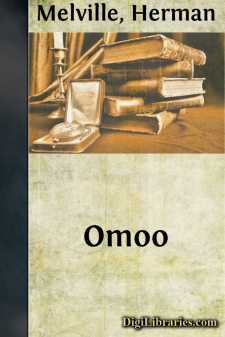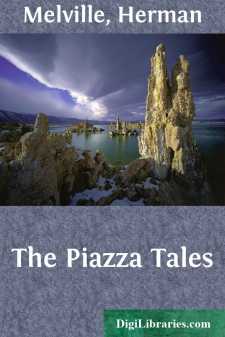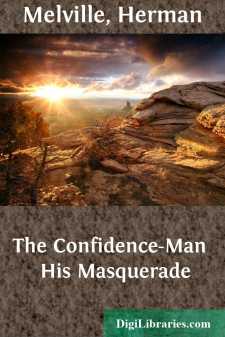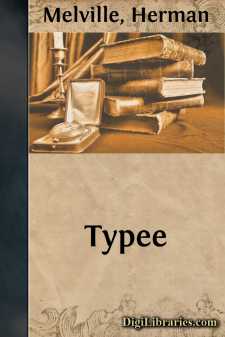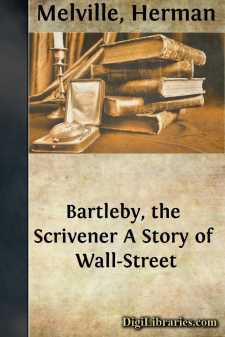Categories
- Antiques & Collectibles 13
- Architecture 36
- Art 48
- Bibles 22
- Biography & Autobiography 813
- Body, Mind & Spirit 142
- Business & Economics 28
- Children's Books 14
- Children's Fiction 11
- Computers 4
- Cooking 94
- Crafts & Hobbies 4
- Drama 346
- Education 46
- Family & Relationships 57
- Fiction 11829
- Games 19
- Gardening 17
- Health & Fitness 34
- History 1377
- House & Home 1
- Humor 147
- Juvenile Fiction 1873
- Juvenile Nonfiction 202
- Language Arts & Disciplines 88
- Law 16
- Literary Collections 686
- Literary Criticism 179
- Mathematics 13
- Medical 41
- Music 40
- Nature 179
- Non-Classifiable 1768
- Performing Arts 7
- Periodicals 1453
- Philosophy 64
- Photography 2
- Poetry 896
- Political Science 203
- Psychology 42
- Reference 154
- Religion 513
- Science 126
- Self-Help 84
- Social Science 81
- Sports & Recreation 34
- Study Aids 3
- Technology & Engineering 59
- Transportation 23
- Travel 463
- True Crime 29
Herman Melville
Herman Melville (1819-1891) was an American novelist, short story writer, and poet best known for his whaling novel "Moby-Dick" (1851), which is considered one of the greatest works of American literature. Although he achieved initial success with his early novels, such as "Typee" and "Omoo," his later works, including "Moby-Dick," were not well received during his lifetime, leading to a period of obscurity. Melville's reputation was posthumously revived in the 20th century, and he is now celebrated for his complex narratives, rich symbolism, and profound exploration of human nature and society.
Author's Books:
Sort by:
by:
Herman Melville
CHAPTER I. THE BIRTHPLACE OF ISRAEL. The traveller who at the present day is content to travel in the good old Asiatic style, neither rushed along by a locomotive, nor dragged by a stage-coach; who is willing to enjoy hospitalities at far-scattered farmhouses, instead of paying his bill at an inn; who is not to be frightened by any amount of loneliness, or to be deterred by the roughest roads or the...
more...
by:
Herman Melville
I and my chimney, two grey-headed old smokers, reside in the country. We are, I may say, old settlers here; particularly my old chimney, which settles more and more every day. Though I always say, I AND MY CHIMNEY, as Cardinal Wolsey used to say, "I AND MY KING," yet this egotistic way of speaking, wherein I take precedence of my chimney, is hereby borne out by the facts; in everything, except...
more...
by:
Herman Melville
CHAPTER I. IT WAS the middle of a bright tropical afternoon that we made good our escape from the bay. The vessel we sought lay with her main-topsail aback about a league from the land, and was the only object that broke the broad expanse of the ocean. On approaching, she turned out to be a small, slatternly-looking craft, her hull and spars a dingy black, rigging all slack and bleached nearly white,...
more...
by:
Herman Melville
CHAPTER I. It was not a very white jacket, but white enough, in all conscience, as the sequel will show. The way I came by it was this. When our frigate lay in Callao, on the coast of Peru—her last harbour in the Pacific—I found myself without a grego, or sailor's surtout; and as, toward the end of a three years' cruise, no pea-jackets could be had from the purser's steward: and...
more...
by:
Herman Melville
THE PIAZZA "With fairest flowers, Whilst summer lasts, and I live here, Fidele—" When I removed into the country, it was to occupy an old-fashioned farm-house, which had no piazza—a deficiency the more regretted, because not only did I like piazzas, as somehow combining the coziness of in-doors with the freedom of out-doors, and it is so pleasant to inspect your thermometer there, but the...
more...
by:
Herman Melville
CHAPTER I.A MUTE GOES ABOARD A BOAT ON THE MISSISSIPPI. At sunrise on a first of April, there appeared, suddenly as Manco Capac at the lake Titicaca, a man in cream-colors, at the water-side in the city of St. Louis. His cheek was fair, his chin downy, his hair flaxen, his hat a white fur one, with a long fleecy nap. He had neither trunk, valise, carpet-bag, nor parcel. No porter followed him. He was...
more...
by:
Herman Melville
XX. IN A FOG HE IS SET TO WORK AS A BELL-TOLLER, AND BEHOLDS A HERD OF OCEAN-ELEPHANTS What is this that we sail through? What palpable obscure? What smoke and reek, as if the whole steaming world were revolving on its axis, as a spit? It is a Newfoundland Fog; and we are yet crossing the Grand Banks, wrapt in a mist, that no London in the Novem-berest November ever equaled. The chronometer pronounced...
more...
by:
Herman Melville
PREFACE MORE than three years have elapsed since the occurrence of the events recorded in this volume. The interval, with the exception of the last few months, has been chiefly spent by the author tossing about on the wide ocean. Sailors are the only class of men who now-a-days see anything like stirring adventure; and many things which to fire-side people appear strange and romantic, to them seem as...
more...
by:
Herman Melville
CHAPTER I Maramma We were now voyaging straight for Maramma; where lived and reigned, in mystery, the High Pontiff of the adjoining isles: prince, priest, and god, in his own proper person: great lord paramount over many kings in Mardi; his hands full of scepters and crosiers. Soon, rounding a lofty and insulated shore, the great central peak of the island came in sight; domineering over the...
more...
by:
Herman Melville
BARTLEBY, THE SCRIVENER. A STORY OF WALL-STREET. I am a rather elderly man. The nature of my avocations for the last thirty years has brought me into more than ordinary contact with what would seem an interesting and somewhat singular set of men, of whom as yet nothing that I know of has ever been written:—I mean the law-copyists or scriveners. I have known very many of them, professionally and...
more...




